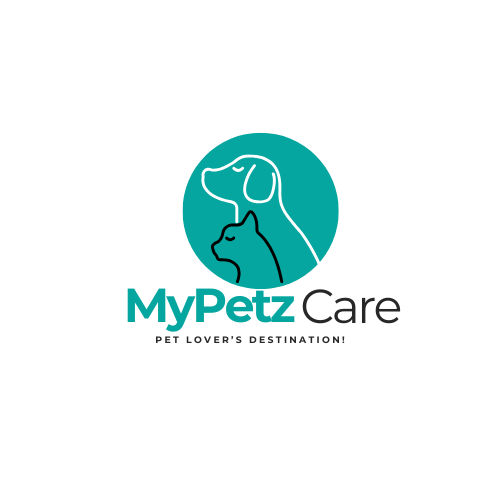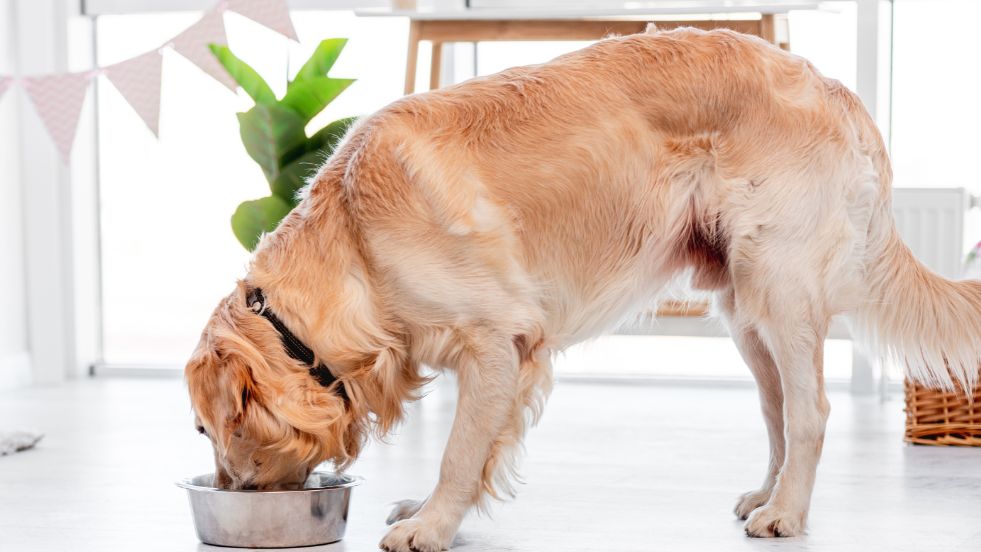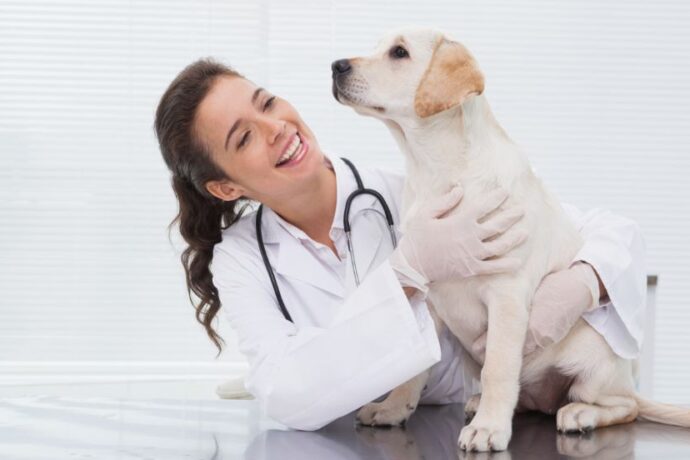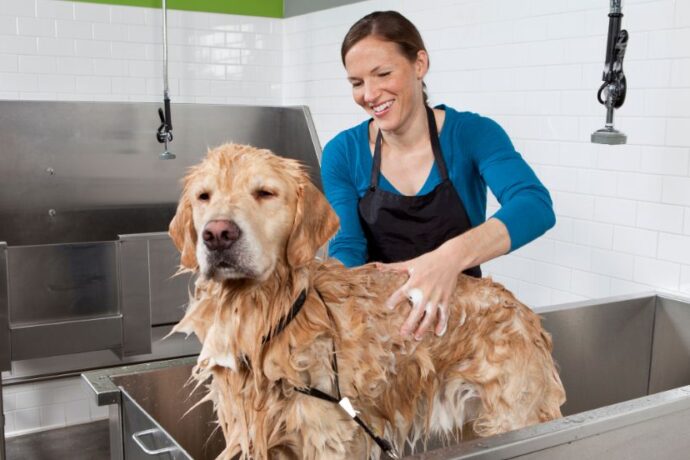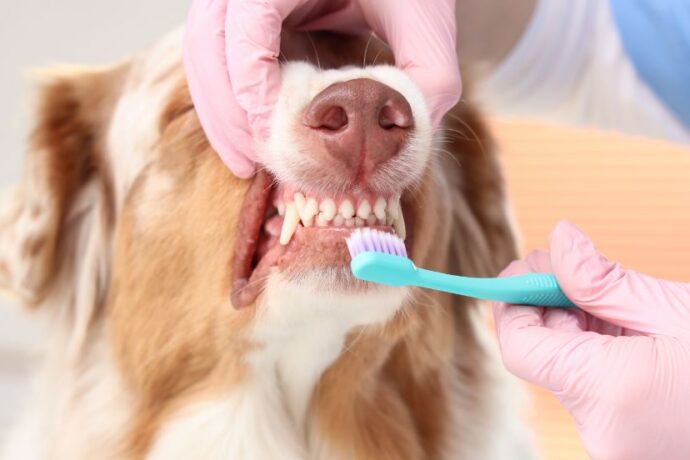Just like humans, dogs can sometimes struggle to maintain a healthy weight. Whether due to high metabolism, illness, or being naturally lean, underweight dogs may face health issues such as weakened immunity, low energy, and poor coat condition. Choosing the right dog food is one of the most effective ways to help your furry friend gain weight safely and steadily. In this guide, we’ll explore the best types of dog food for weight gain, practical feeding tips, and examples backed by scientific understanding.
Understanding Dog Food for Weight Gain: What to Look For
Not all dog foods are created equal when it comes to promoting healthy weight gain. Foods designed for weight gain typically have higher calories, richer protein content, and nutrient-dense ingredients that support muscle growth. Here’s what to consider when selecting the right formula:
1. Calorie-Dense Foods – Look for dog foods with more calories per cup, often labeled as “high-calorie” or “performance formula.” Dogs with high energy needs or fast metabolism benefit from extra calories.
2. High-Quality Protein – Protein supports muscle development. Ingredients like chicken, beef, fish, or lamb should be among the first listed.
3. Healthy Fats – Fats are concentrated energy sources. Omega-3 and Omega-6 fatty acids also improve coat health and skin condition.
4. Digestibility – Choose foods with easily digestible ingredients. Dogs that struggle to absorb nutrients from their food may not gain weight effectively.
Scientific studies indicate that diets with higher protein and calorie content can safely increase weight in underweight dogs, particularly when combined with regular exercise to promote lean muscle mass rather than just fat (1).
Top Dog Food Options for Weight Gain
Selecting the right dog food is crucial for helping your pup gain weight safely. Here are some highly recommended options, along with what makes them effective:
1. Purina Pro Plan Sport Performance 30/20
- Why it works: This formula is packed with protein and fat, specifically designed for active dogs or dogs with high metabolisms that need extra calories.
- Nutritional Highlights: 30% protein, 20% fat, high in amino acids for muscle maintenance.
- Feeding Tips: Feed slightly larger portions or add an extra meal per day for underweight dogs. Pair with light exercise to build lean muscle instead of just fat.
2. Hill’s Science Diet Adult Healthy Weight + High Calorie
- Why it works: A balanced formula that provides calorie-dense nutrition without overloading on unhealthy fats. Ideal for dogs who need steady, safe weight gain.
- Nutritional Highlights: 3High-quality protein from chicken, balanced fats, fiber for digestive health, enriched with vitamins and minerals.
- Feeding Tips: Mix with a bit of wet food to make it more palatable for picky eaters. Monitor weight weekly to adjust portions gradually.
3. Royal Canin Medium Calorie
- Why it works: While primarily designed for weight management, the medium-calorie formula can be customized with small portion increases for dogs struggling to gain weight.
- Nutritional Highlights: Highly digestible proteins, balanced carbohydrates, and prebiotics for gut health.
- Feeding Tips: Ideal for dogs sensitive to sudden diet changes. Start with smaller increments and slowly increase the daily portion.
4. Blue Buffalo Life Protection Formula Healthy Weight
- Why it works: Made from real meat and wholesome grains, it’s calorie-dense but provides balanced nutrition for overall health.
- Nutritional Highlights: Rich in protein, healthy fats, and antioxidants to support immunity and coat health.
- Feeding Tips: Can be combined with small amounts of lean meat or healthy oils to boost calorie content without upsetting digestion.
5. Nutro Ultra Adult Dry Dog Food
- Why it works: This premium formula includes a trio of high-quality proteins from chicken, lamb, and salmon, along with nutrient-rich superfoods.
- Nutritional Highlights: Moderate fat content for energy, high protein for muscle growth, and essential vitamins and minerals for overall wellness.
- Feeding Tips: Ideal for dogs with sensitive stomachs because of its highly digestible ingredients. Serve slightly warmed to enhance flavor and encourage eating.
6. Wellness CORE Grain-Free High-Protein Formula
- Why it works: This grain-free option is calorie-dense with high protein content, perfect for dogs needing to gain weight without grains that may irritate their digestive system.
- Nutritional Highlights: 34% protein, 16% fat, enriched with vitamins, minerals, and antioxidants.
- Feeding Tips: Introduce gradually if switching from a grain-based diet to avoid stomach upset.
7. Adding Homemade Calorie Boosters
Sometimes, commercial dog foods alone may not be enough. You can safely enhance calorie intake by mixing in:
- Cooked lean meats like chicken or turkey
- Pumpkin puree for fiber and digestive health
- Cottage cheese or plain yogurt for protein and healthy fats
- Small amounts of olive oil or fish oil
Scientific Insight: Studies have shown that adding digestible fats and proteins to a dog’s diet can improve weight gain while maintaining lean muscle mass. Always introduce additions gradually to prevent digestive upset (2).
Practical Tips to Help Your Dog Gain Weight Safely
- Increase Meal Frequency – Instead of two large meals, feed your dog three to four smaller meals daily. This boosts calorie intake without overwhelming their digestive system.
- Add Healthy Supplements – A small amount of cooked lean meat, pumpkin, or cottage cheese can add calories and nutrients. Avoid human junk food, which can harm dogs.
- Include Healthy Fats – Olive oil, fish oil, or flaxseed oil can be added in moderation to increase caloric intake.
- Monitor Weight and Adjust – Track your dog’s weight weekly. Adjust food portions gradually, as rapid weight gain can cause health problems.
- Exercise Strategically – Light exercise helps build muscle rather than just fat. Avoid excessive activity for severely underweight dogs until they gain some strength.
Veterinary research emphasizes that sudden overfeeding or using high-fat “junk” foods can lead to digestive problems, pancreatitis, or obesity later. A balanced, nutrient-dense diet is the safest approach.
FAQs Frequintly Asked Questons
1. How quickly should my dog gain weight?
A. Healthy weight gain usually occurs at a gradual pace of 0.5–1% of body weight per week. Rapid weight gain can stress internal organs.
2. Can puppies eat weight-gain formulas?
A. Puppies already have higher calorie needs, so special weight-gain foods are rarely necessary unless prescribed by a veterinarian. Overfeeding can lead to growth issues.
3.When should I see a vet about underweight dogs?
A. If your dog is losing weight unexpectedly, has a poor appetite, or shows signs of illness (vomiting, diarrhea, lethargy), consult a veterinarian immediately. Underlying medical issues like parasites, thyroid disorders, or digestive problems may require treatment alongside dietary changes.
Conclusion:
Helping your dog reach a healthy weight is about more than just feeding more food. It requires selecting nutrient-dense, calorie-rich foods, providing proper meal frequency, adding safe supplements, and monitoring progress closely. By choosing the right dog food and following a carefully structured plan, you can ensure your dog gains weight in a safe, sustainable way while boosting their energy, immune health, and overall quality of life. Always collaborate with your veterinarian to create a personalized weight-gain strategy tailored to your dog’s needs.
References:
1. Weight loss and high-protein, high-fiber diet consumption
2. Effect of dietary protein intake on the body composition
